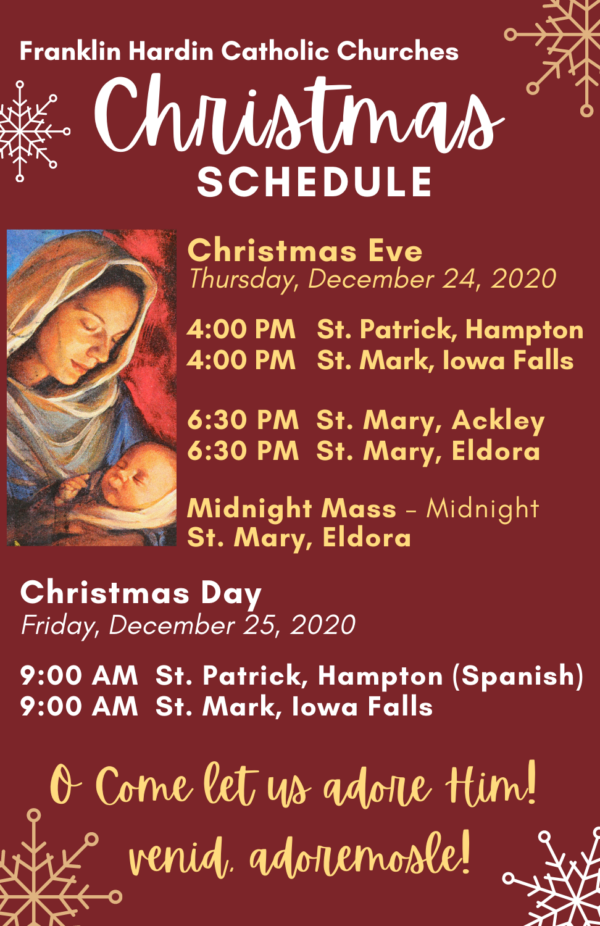Last week, in my column, I shared the Archbishop’s report after the listening sessions around the
Archdiocese.
Before I give a few of my own reflections – which will be shared over the next few weeks – I
wanted to share with you a bit more about the practicalities of this “Synodal” process:
Each diocese in USA and Canada chose to appoint and send delegates to attend the assembly for
the “Continental Synod,” composed of various virtual meetings over the course of December and
January.
Archbishop hosted a listening session in each deanery (including two in Spanish), to gather
information for the delegates. The information was synthesized into the report that I shared in my
bulletin column last week. Which, if you missed, you can find my columns online:
franklinhardincatholic.org/ under “News and Events” on the right hand side of the web page.
The delegates for the Archdiocese of Dubuque are: 1) Cassie and Josh Bird 2) Cathy and Deacon
John Stierman 3) Sr. Pat Doody, OSF 4) Dave Cushing 5) Elliot Meyer, and 6) Kim Hermsen.
Each delegate was assigned to a small group of six to eight people, with one of them designated
as facilitator for the small group, and another as representative to the larger assembly.
Each member of the small group was allotted three minutes to share the fruit of her/his prayerful
discernment. Back in the full assembly, each small group representative was allotted three
minutes to share two or three themes from her/his small group discussion.
Someone in the full assembly writes down the common themes mentioned by the small group
representatives, which are then forwarded to the Vatican Synod Office.
Additionally, there will be soon be a priest Continental Synod, where two priest delegates are sent
from each diocese to engage in a similar process as mentioned above.
Now, on to my reflections:
Since the beginning of Christianity, the Church has always had to live in the tension between:
1. How to remain faithful to all the Christ came to teach and reveal, and
2. And how do we apply that to new and different questions, contexts, situations, etc.
(especially those not explicitly addressed in Scripture).
Thus, over the centuries, Christians have wrestled with, discussed, and, most importantly, prayed
through these questions as they’ve arisen.
We recognize that there are foundational, unchanging Teachings of the Church that will not
change. That there is objective Truth, and there is objective Good (morality, right and wrong).
These objective things do not change, and are not a matter of popular vote or opinion.
All that being said, while the foundational truths/doctrines are unchanging, some things that can
change are things such as the particular way we articulate those truths. What can change is the
prudential application in explaining those truths, and accompanying people who are struggle in
various ways.
I will reflect further on this in my bulletin column next week with engaging these questions
around the controversial topics of abortion and marriage.
Peace,
– Fr. Kevin

